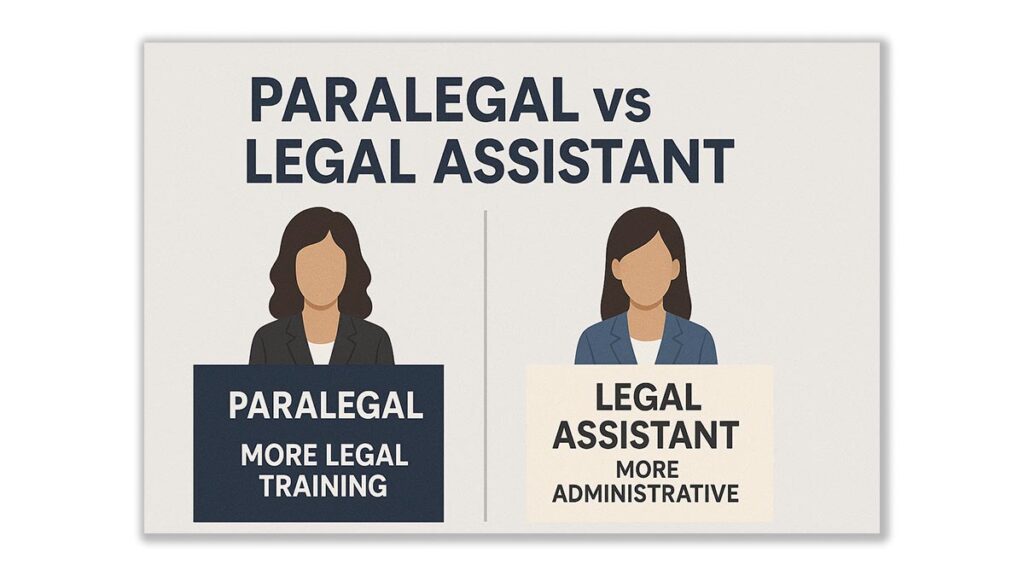Choosing the right Paralegal Services Provider isn’t just about filling roles—it’s about aligning with partners that understand law firm dynamics, litigation pressures, and the compliance standards that govern the legal profession. As client expectations rise and the demand for leaner operations increases, many U.S. law firms—especially those in competitive markets—turn to external providers for virtual paralegal staffing and case support.
What Does a Paralegal Services Provider Offer?
A Paralegal Services Provider delivers qualified professionals who assist attorneys with legal research, drafting, document review, trial preparation, and client communication. These services can be delivered on-site, off-site, or remotely, depending on the firm’s structure and the complexity of its matters.
Key areas include:
- Litigation support: managing discovery, drafting pleadings, and organizing trial exhibits.
- Corporate law: preparing corporate filings, maintaining compliance calendars, and drafting contracts.
- Family law: handling disclosures, calendaring hearings, and managing sensitive client communications.
- Real estate: reviewing title documents, preparing closing statements, and coordinating with title companies.
An experienced Paralegal Services Provider ensures the assigned personnel not only meet state certification requirements but are trained in practice-specific software and remote productivity protocols.
Benefits of Hiring a Paralegal Services Provider
| Benefit | Impact |
|---|---|
| Scalability | Rapidly scale paralegal support based on caseload volume |
| Cost-efficiency | Save 35–50 % compared to in-house full-time hires |
| Specialization | Access domain-specific paralegals (e.g., IP, immigration, family) |
| Reduced overhead | No payroll taxes, benefits, or administrative overhead |
| Faster turnaround | Provider-managed productivity benchmarks |
By working with a Paralegal Services Provider, law firms gain operational agility without sacrificing case quality.
How a Paralegal Services Provider Supports Profitability
Profit-per-partner (PPP) is directly tied to staffing leverage and realization rates. Overworked attorneys handling tasks below their billable grade—such as document prep or calendaring—leak hours and erode profitability. A Paralegal Services Provider solves this by:
- Delegating mid-tier legal tasks at $30–$60/hour to trained professionals.
- Freeing attorney time for strategic work and client-facing roles.
- Improving realization by capturing previously unbilled tasks through detailed time entries.
- Enabling flat-fee predictability in practice areas like estate planning and immigration.
Skills and Qualifications: What to Expect from a Paralegal Services Provider
Top-tier providers deliver professionals with:
- ABA-approved paralegal certification or state-mandated credentials.
- Expertise in legal CRMs (Clio, PracticePanther, MyCase).
- Fluency in case-specific software (Relativity, Westlaw, TrialDirector).
- Remote-readiness: VPN setup, compliance with secure file-transfer protocols, and asynchronous collaboration habits.
When Should You Engage a Paralegal Services Provider?
| Scenario | Reason to Outsource |
|---|---|
| Litigation spike | Extra support for discovery deadlines and deposition prep |
| New office launch | Delay in hiring full-time staff; need immediate coverage |
| Attorney leaves | Interim paralegal fills staffing gaps |
| Flat-fee model adoption | Control backend costs and maintain margins |
| Seasonal demand | E.g., tax law, immigration filings, family law peaks |
Firms that proactively use a Paralegal Services Provider during these scenarios outperform peers in responsiveness and financial resilience.
What’s the difference between a freelance paralegal and a paralegal services provider?
A freelance paralegal works independently, often without formal oversight or guaranteed availability. A Paralegal Services Provider, on the other hand, offers structured support, pre-vetted personnel, quality assurance, and backups to ensure continuity.
In today’s legal market, the right paralegal services provider is not just a vendor—it’s a strategic extension of your practice. Whether you manage a boutique litigation shop or a full-service regional firm, outsourced paralegal support can help optimize workflows, reduce costs, and increase case velocity.
Paralegal Services Provider: What Law Firms Should Know
The legal industry’s reliance on flexible staffing models has given rise to a new cornerstone of operations: the paralegal services provider. These companies supply trained, credentialed paralegals who work remotely or on-site under attorney supervision to support litigation, transactional matters, regulatory filings, and internal firm workflows.
A qualified paralegal services provider offers more than clerical support. Their personnel are trained to:
- Conduct legal research using tools like Westlaw, LexisNexis, and Bloomberg Law.
- Draft pleadings, contracts, discovery responses, and corporate documents.
- Assist in case strategy through investigation and document review.
- Manage client communications and deposition preparation.
These professionals bridge the gap between attorneys and administrative staff, enabling law firms to stay lean while expanding their capacity to handle more matters.
How Paralegal Services Providers Transform Legal Operations
The benefits of partnering with a skilled paralegal services provider are both operational and financial. Firms that leverage such partnerships typically report:
| Benefit | Outcome |
|---|---|
| Lower Overhead | Avoiding full-time salaries and benefits |
| Increased Flexibility | Scale staffing based on case volume and urgency |
| Improved Speed to Resolution | Faster document production and trial prep |
| Enhanced Attorney Productivity | Attorneys focus on strategy rather than execution |
| Geographic Expansion | Providers offer nationwide coverage with licensed talent |
By offloading time-consuming, non-core legal tasks, partners can focus on high-billable activities that drive firm growth.
Vetting a Paralegal Services Provider: Key Considerations
Choosing a provider should mirror your due diligence in selecting lateral talent or key clients. The following factors are essential:
- Legal Credentialing
Look for providers who offer certified paralegals (NALA, NFPA, NALS) or state-specific credentials such as California’s Business & Professions Code § 6450 compliance. - Specialization
Evaluate whether the provider supports your practice area: litigation, corporate, real estate, IP, immigration, etc. - Data Security & Compliance
Ensure the provider adheres to confidentiality standards and is HIPAA, GDPR, or SOC 2 compliant as needed. - Workflow Integration
The best providers offer seamless integration with your practice management tools (Clio, NetDocs, iManage, etc.) and timekeeping platforms. - Onboarding & Support
Expect rapid deployment and access to dedicated account managers, especially during peak periods like discovery or trial.
Virtual vs. In-House: The Changing Role of the Paralegal
A paralegal services provider typically offers remote, full-time, fractional, or on-demand staffing. When comparing this with in-house hiring, consider:
| Aspect | In-House Paralegal | Provider-Based Paralegal |
|---|---|---|
| Cost | High (salary + benefits) | Variable, no benefits |
| Availability | Fixed hours | Extended or flexible hours |
| Scalability | Limited | Scales with matter volume |
| Onboarding Time | Weeks | 48–72 hours (avg) |
| Tech Compatibility | Limited | Pretrained on your preferred stack |
The Strategic Value of Intake and Paralegal Services Combined
A paralegal services provider adds exponential value when paired with legal intake specialists. Together, they create a unified system that ensures:
- Only qualified, profitable matters are accepted.
- Legal teams are supported from intake through resolution.
- Data is captured accurately for compliance and analytics.
This symbiosis prevents leakage of revenue opportunities and streamlines workflows across litigation and transactional teams.
What is the difference between a paralegal services provider and hiring a freelance paralegal?
A paralegal services provider offers structured, accountable staffing under clear SLAs, often with industry-grade security, team redundancy, and guaranteed service quality. In contrast, hiring a freelance paralegal usually involves managing that individual directly, with fewer guarantees, less scalability, and greater risk exposure.
Not all paralegal services providers are equal. Choosing the right partner can mean the difference between stalled growth and accelerated legal performance. By aligning with a provider like Regents, law firms can optimize output, protect revenue, and scale confidently.
Paralegal Outsourcing Services
Paralegal outsourcing services have become a cornerstone strategy for U.S. law firms in 2025 seeking to reduce overhead, scale support teams efficiently, and retain profitability in a shifting legal services market. This in-depth guide explores the structure, benefits, compliance issues, and future trends of outsourcing paralegal functions—and how partners can leverage it for long-term operational advantage.
Why Paralegal Outsourcing Services Now?
The American legal sector is navigating a complex mix of billing pressure, client demand for efficiency, and talent retention challenges. As a result, paralegal outsourcing services have emerged not as a cost-cutting last resort, but as a forward-thinking solution to three primary objectives:
- Increasing leverage ratios without increasing office footprint
- Offloading routine tasks while retaining high-value strategic work
- Meeting client expectations for speed and responsiveness
Law firm partners who implement outsourced paralegal staffing models report increased agility and decreased burnout among in-house teams—especially during trial preparation, document review cycles, and class-action surges.
What Are Paralegal Outsourcing Services?
Paralegal outsourcing services refer to the delegation of legal administrative support tasks to external professionals or agencies—either domestically or offshore—who are not directly employed by the firm but operate under the firm’s guidance and supervision.
Outsourced paralegals perform functions including:
- Drafting discovery requests and responses
- Reviewing medical and billing records
- Organizing trial exhibits and evidence logs
- Managing e-discovery platforms
- Conducting case law research
- Preparing summaries and timelines
Some providers also offer multilingual paralegals, litigation tech support, and 24/7 document management—especially valuable for firms engaged in international arbitration or complex federal cases.
Key Models of Paralegal Outsourcing Services
| Model | Description | Best For | Considerations |
|---|---|---|---|
| Freelance Paralegals | Independent contractors hired per project | Small firms, solo attorneys | Requires vetting, lacks redundancy |
| LPO Firms (Legal Process Outsourcing) | Companies offering full-time or part-time outsourced legal staff | Mid-to-large law firms | Strong SLAs, may involve offshore labor |
| Staff Augmentation | Outsourced team works as embedded support under firm branding | Am Law 200, national litigation boutiques | Requires strong onboarding and data security |
| Hybrid Models | Mix of internal + outsourced resources across cases | Growth-stage firms | Scalability and workflow management critical |
—
Benefits of Paralegal Outsourcing for Law Firm Partners
- Cost Control: Outsourced paralegals often cost 40–60% less than full-time hires when factoring in benefits, office space, and training costs.
- Improved Flexibility: Partners can scale up support quickly in response to caseload changes—ideal for litigation spikes or cross-border deals.
- Operational Focus: In-house teams can devote time to client interaction, strategy, and high-touch document drafting while external paralegals handle foundational work.
- Faster Turnaround: Providers with global time zones and 24/7 availability speed up production, improving client satisfaction.
- Access to Specialized Skills: Many outsourced paralegals are trained in specific areas such as immigration, IP law, or insurance defense—adding value to niche practice groups.
Security and Compliance Considerations
Law firms must ensure any outsourced paralegal service adheres to:
- ABA Model Rules 5.3 and 5.5 regarding nonlawyer assistance
- Confidentiality protocols under Rule 1.6
- Client consent disclosures
- GDPR or HIPAA compliance (as applicable)
A robust vendor agreement should define:
- Scope of work and access levels
- Data protection measures (e.g., VPNs, NDA, encryption)
- Conflict checks and conflict waivers
- Insurance and liability clauses
Strategic Leverage with Paralegal Outsourcing
Paralegal outsourcing services are not just about saving money—they’re about reclaiming strategic time, maximizing efficiency, and ensuring firm scalability. For law firm partners focused on growth and margin discipline, outsourcing is no longer optional—it’s operationally essential.


